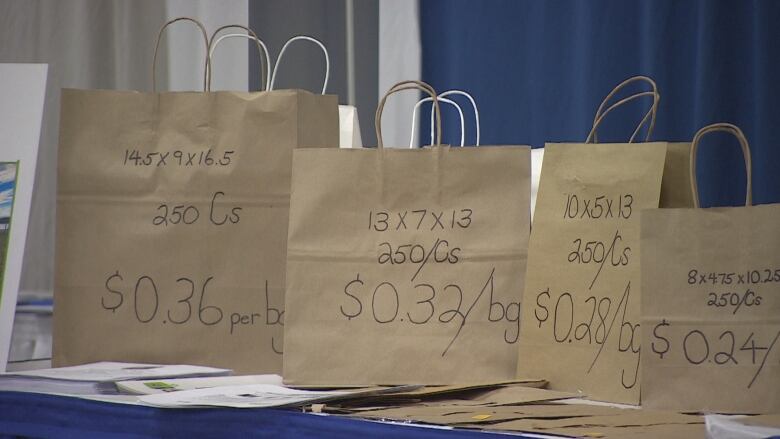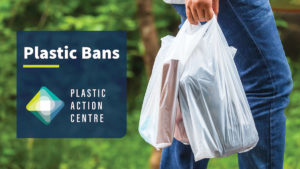- Plastic Bans
- Policy
- National
Sure, N.L. is going to ban plastic bags, but how, and when?
Soon after Newfoundland and Labrador announced the province would ban plastic bags, critics question the timeframe and details of the plan.
Full Article:
Newfoundland and Labrador is forging ahead with a ban on plastic bags, but questions remain about just how that ban will look, when it will happen, and what the next steps are.
The ban on retail plastic bags, and exemptions to that ban, received royal assent from Lt.-Gov. Judy Foote, but there are still many details to be worked out.
The province will have to come up with the actual regulations and rules, so it will be some time before the details of the ban will be hammered out and therefore released to the public.
“In the regulations you will have the details of the fees, if there are going to be any, the transition time,” Environment Minister Graham Letto said.
“But we know, from what we’ve heard, that a six- to 12-month period is what would be acceptable, so we’re working with that, and we’ve looked at other jurisdictions that have brought in a ban and that seems to be consistent with any other jurisdiction.”
Through the public consultation process, Letto said government heard from people what their concerns are, and that feedback will help steer the province as it navigates how to implement a practical bag ban.

Municipal Affairs and Environment Minister Graham Letto says it could be between six months to a year before a ban comes into effect. (CBC)
“A lot of people had concern about the fees and the alternatives that would be used to replace plastic bags and how we would proceed with that,” he said.
“There was some concern about the loss of plastic and we were certainly reminded of, even though they’re called single-use plastic bags, people have lots of uses for them.”
Letto said despite those concerns, he’s confident the province is ready and able to implement a ban if the feedback is any indication.
“Consultations are good.”
‘It’s the wrong way to go’
But not everyone is happy with the consultation process, including the Canadian Plastics Industry Association.
“The bag ban issue is all about politics, a pre-election ploy about what the government sees is an easy win so they can look green,” said Joe Hruska, vice-president of sustainability with the association.
Hruska said banning plastic bags at stores isn’t the environmental cure-all it’s being touted as.
“We’re not surprised by the public’s view on this. Our industry quite frankly hasn’t done a good job in educating people on the science, so we have to do a better job,” he said.

Crown corporation NLC has already gotten rid of its plastic bags, and instead sells reusable bags. (Sherry Vivian/CBC)
“We just feel it’s the wrong way to go.”
The plastic bag has been “demonized,” Hruska said, without looking at the consequences of its replacements.
Paper bags, Hruska said, leave a larger carbon footprint, and most reusable bags also contain recycled plastics material, but they are not recyclable and, he said, have an even longer lifespan than single-use plastic bags at grocery stores, for example.
A blanket ban has “multiple negative consequences that just have not come out in the discussion,” Hruska said.
“Giving choices and educating people to reduce, reuse and recycle is critical here to achieve environmental benefits,” he told CBC’s On The Go.

Some paper bag options are shown off at a trade show in Charlottetown, as Prince Edward Island implements a plastic bag ban. (Shane Hennessey/CBC)
“Our industry promotes reuse, and really the first thing that we promote is reduction, if you don’t need a plastic bag, don’t take it. If you take one, make sure you reuse it and you recycle it. When it comes to reusable bags, we’re not against them.”
Plastic is a “miracle of 21st-century engineering,” Hruska said, and has done a lot to improve modern lifestyles, but society basically has “to do a better job on our recycling.”
And whatever bag you choose to use, find ways to repurpose it.
“We’d like to work with the government. We’ve already told them over the past couple years the science so they understand the impacts that will happen, and there are other stakeholders that want to solve the problem, too.”



